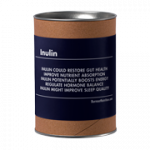Allergies and Sensitivities in CFS
People with CFS are often found to have allergies or sensitivities that can exacerbate their symptoms. These can range from food allergies and sensitivities, to chemical sensitivities and environmental allergies such as pollen, dust mites, and animal dander.
Food Allergies and Sensitivities
In CFS, individuals often develop food allergies or intolerances that they might not have had before. Common sensitivities include gluten, dairy, yeast, sugar, and caffeine. Eating foods that one is sensitive to can intensify CFS symptoms. It’s also speculated that gut health plays a role in this, as a healthy gut is key to the proper functioning of the immune system and overall well-being.
Chemical Sensitivities
People with CFS often develop sensitivities to chemicals such as cleaning products, perfumes, paint, or car exhaust. Exposure to these substances can trigger and worsen CFS symptoms.
Environmental Allergies
Environmental allergies like pollen, dust mites, and animal dander can also trigger symptoms in CFS patients. These may provoke an immune response which can worsen fatigue and other symptoms.
Management of Allergies and Sensitivities in CFS
Identifying and managing allergies and sensitivities can help lessen the severity of CFS symptoms. Diet changes, such as eliminating food allergens, can noticeably improve energy levels and mental clarity. For those with chemical and environmental allergies, avoidance of the allergens where possible, and the use of antihistamines or other allergy medications may help.
It is important for anyone with CFS to work with a healthcare provider to identify their individual triggers and develop an effective plan to manage their allergies and sensitivities. Regular allergy testing can be useful in identifying and managing these triggers.
Early recognition and management of these allergens and sensitivities can help to reduce the overall impact on individuals suffering from Chronic Fatigue Syndrome.



